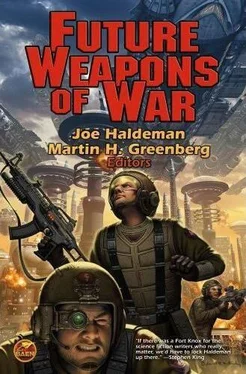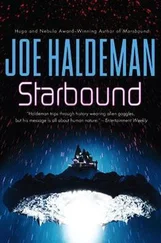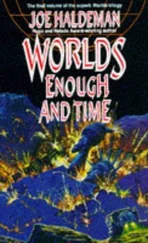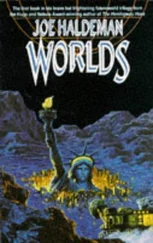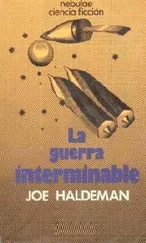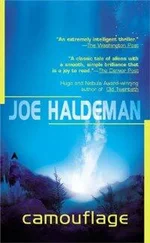The other kids watched silently as Rocket Boy climbed onto the car and told them that he was taking charge of the business. “I promise that I will take only half of what you earn, no more, no less,” he said. “And there will be no more beatings.”
That evening, the sidekick, a boy by the name of Vance, drove him to the cafe where the cigarettes were distributed. The pistol had shot Vance with a smart bullet, and Rocket Boy told him that he would live as long as he was loyal, but if he even thought of betrayal or revenge, the bullet would kill him at once. At the cafe, following the advice of the pistol, Rocket Boy turned over the money he’d taken from the cigarette sellers to the fat man Vance pointed out, and explained that from now on he was running Kalim’s pitch.
The fat man barely looked up from the food he was spooning into his mouth, saying, “I don’t care what you punks do, long as you bring in the gelt,” and that was that.
Later that evening, in Kalim’s coldwater apartment at the edge of the industrial district, the pistol told Rocket Boy that there was a high probability that one of the gangsters who ran the neighboring pitches would try to lake the business away from him. “They will think you weaker than them. They will think that you killed Kalim by a stroke of luck.”
Rocket Boy said, “And if I kill the man who tries to kill me, will it stop there?”
The day had left him exhausted, excited, and agitated. He didn’t regret the deaths of Kalim and the sidekick for a moment; all the anger and hurt he’d suppressed for so long had been released when he’d shot them. Once you’d killed someone, he discovered, your own life mattered less, and there was a wonderful freedom in that knowledge. But he felt a yawning apprehension now that he realized that he had stepped through a door into a new world, and there was no going back.
“Do not worry,” the pistol said. It sat in his lap, its power LED twinkling like a baleful star. “I have fully gamed this situation. As long as you follow my advice, nothing will go wrong.”
A little later, as Rocket Boy was falling asleep, it added, “You are a willing pupil. We will go far, you and me.”
* * * *
His enemies came for him two days later, just after he’d distributed the bags of cigarettes to his gang of sellers. Two cars roared into the dusty arena under the beltway, each discharging a pair of thugs armed with assault rifles. By now, the pistol had learned how to control the little machines that had taken refuge under the intersection, and a rattling flock of shopping carts immediately charged the thugs.
Rocket Boy shot three of them while they were fighting off the machines, and when the survivor tried to run he was knocked down by a shopping cart. Rocket Boy walked up to him, followed by two battered service mechs, and asked him who had sent him. The young thug tried to spit in his face, and at the pistol’s prompting, one mech lit its welding torch,and the other snapped the pincers of its hand an inch from the man’s face. “If yon don’t talk,” Rocket Boy said calmly, “I’ll let the machines take you apart.”
That night, Rocket Boy killed the gangster who had sent the thugs after him and took over his pitch, but the pistol and the old man soon persuaded him that selling cigarettes was not enough. After spending a month training the toughest of the street kids and earning their loyalty, he began to hold up trucks bringing food into the city from the river valley. He gave half the stolen produce to hospitals and community leaders—after the war, food was expensive and in short supply, and many families could barely afford basic rations—and sold the rest at knockdown prices to market traders. Soon, produce trucks were moving only in convoys guarded by soldiers, and Rocket Boy changed his tactics and liberated a large quantity of medicines and drugs from a warehouse owned by the Minister of Health—the old man, whose name was Yan Yane, had discovered from former colleagues in the civil service that the minister had been skimming supplies and selling them on the black market.
A week after this coup, Rocket Boy was invited to a meeting with the heads of the three families who controlled drugs, gambling and prostitution in the city. He went with the old man, Yan Yane, and two burly sidekicks. He did not take the pistol because it had been made clear that he could not carry a weapon to the meeting, but the pistol had briefed him extensively beforehand.
“They want to meet you because they are intrigued by you,” it had told Rocket Boy. “If they wanted to kill you, they would have already done it. Instead, they believe that you can make a lot of money, and they want to claim a share in it.”
So it turned out. Rocket Boy gave each of the heads of the three families a generous cut of the profits he had made from the truck hijacks and the warehouse job. He told them that he did not want any share of their businesses, but proposed a new business of his own. He would organize a security service for the people of the city.
He sat at the far end of the long polished table in an expensive new suit, Yan Yane at his left hand. He felt cool and calm, facing the three men and their phalanx of advisors and lieutenants and bodyguards. The worst they could do was kill him, and he knew now that dying was nothing. He spoke clearly and with great force, staring into each of their faces in turn. “The police are corrupt, and they are owned by the puppet government. The people hate them more than they hate the soldiers that occupy our city. I will organize block committees of volunteers who will patrol their own streets and deal with troublemakers as they see fit. In return for this protection, every business will pay a small amount into a common fund—less than they currently pay in kickbacks and protection money to the police. Your businesses will be exempt, of course.”
“What will you do when the police try to shut you down?” one of the men asked.
“I will deal with the police,” Rocket Boy said.
He struck two weeks later, after extensive discussions with community leaders across the city.
They were more than willing to listen to him. He had earned considerable kudos by distributing free food and medicines, and the people of the city chafed under the casual brutality and corruption of the police. At exactly nine o’clock in the morning, shopping carts loaded with bombs rattled through the gate of every police station across the city and promptly blew themselves up. At the same moment, Rocket Boy assassinated the police chief as he climbed into his armored limousine; the pistol’s smart, self-guiding bullets blew off his head from a range of half a mile. The city was immediately placed under martial law by the occupying army, but the community leaders made sure that there was no looting or rioting, and thesoldiers of the occupying army soon returned to their barracks in the fortified Green Zone in the center of the city. A respected religious leader announced that from now on the city would police itself, a few scapegoats were arrested, tried, and executed for the bombings, and Rocket Boy found himself at the head of a militia of more than ten thousand men.
* * * *
The occupying army quickly made an accommodation with him, but the puppet government resented the loss of power. At one of the receptions held in the Green Zone, a drunken army captain came up to Rocket Boy and told him that he should watch his ass, certain people wanted him dead.
“You’ve come far and fast, and so far you haven’t missed a step,” the captain said. This was on a balcony of what had once been the city’s museum, overlooking the central park. It was midnight, and fireworks were exploding over the lake. The captain’s sweating face was briefly lit by red or green or gold light. “We know that if we took you out, there would be a civil war. So, we have come to an accommodation with you. We’re a pragmatic people. We let our heads rule our actions, not our hearts.
Читать дальше
